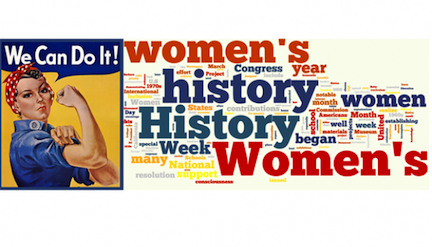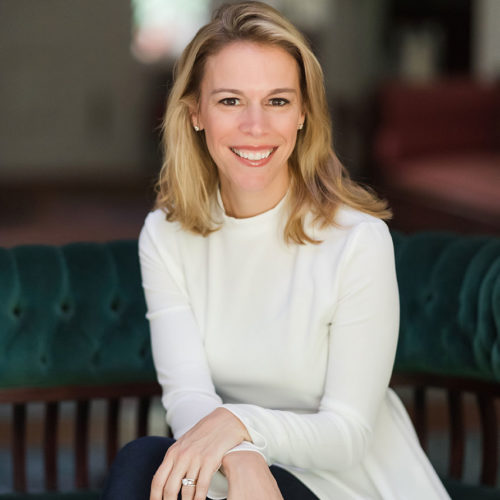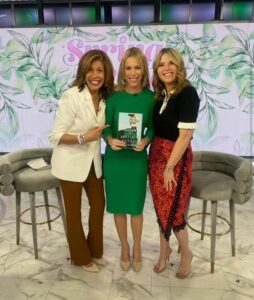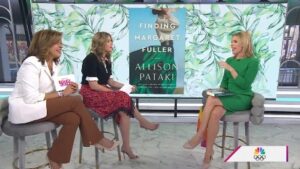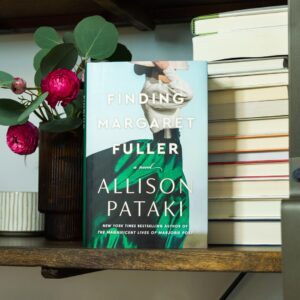Huffington Post: Did you know that today officially begins Women’s History Month? And in just a few days, on March 3, we will celebrate 100 years since women suffragists marched on Washington, asking for the right to vote.
My book club this month will be taking up a couple of books that deal specifically with the questions of what it means to be a woman in our modern world. How competing factors like careers, marriage, children, friends, social expectations, etc., influence and inform our decisions every minute of every day. It’s a mad and frenzied and marvelous balancing act that is expected of us!
In honor of this month, I’ve been thinking a lot about one of my favorite topics — women who took on history and welcomed the opportunity to play the parts of leading ladies in their times. My past blogs have covered some of these women.
Today I am thinking specifically about some of the strong female characters who have been featured and memorialized in literature. I’ve come up with a list of fiction and nonfiction books that unfold around these characters. Women who weathered adversity ranging from the intimate to the epic. Women who led and loved and lost. Women who inspired us then, and inspire us now. Women who, by the time you reach the back cover, have come to feel like old friends. Friends who remain with you long after you put the book back on the shelf.
This list is by no means exhaustive. But my thought was, since March is Women’s History Month, perhaps this is the best time of all to go back and get reacquainted with some of these women. And so here’s my hit list of some of my favorite books based around unforgettable leading ladies (this awards-show-esque list-making also ties in nicely with the Oscars, now that I think about it!). If you have your own list of this sort, I’d love to hear from you.
- Jane Eyre, by Charlotte Bronte: One of my favorite books of all-time. I always wonder if I would have the internal fortitude to make it through just one day in Jane’s life, let alone an entire lifetime. I love that, after an existence spent in haunted mansions and on ferocious moor lanscapes, Jane does eventually get her “happy ending,” but that it’s not picture perfect. It’s messy and complicated and real. And, best of all, it’s on her terms and does not require her to compromise her own scruples.
- The Language of Flowers, by Vanessa Diffenbaugh: The relationship between Victoria and foster mom, Elizabeth, is both heartbreaking and uplifting. And Diffenbaugh’s language is as vivid and fresh and original as the floral bouquets that feature so cleverly into her plot.
- Cleopatra: A Life, by Stacy Schiff: History has certainly had much to say on the life of this formidable and enchanting Egyptian Queen, but Stacy Schiff takes a cerebral and fact-based approach that reconstructs the world of this Ptolemaic monarch and her ancient world with sunlit clarity. By the end of Schiff’s book, you feel certain that the most seductive thing about Cleopatra was not her Elizabeth-Taylor-esque physique or her bewitching serpentine accessories – it was her mind.
- Madame Tussaud: A Novel of the French Revolution, by Michelle Moran: Before the global phenomenon of Paul McCartney and Beyonce-shaped-wax figurines, there was a modest artist in Paris struggling to make a living by her unique talent for sculpting. Moran traces the life of this shrewd survivor, painting a picture of the woman who came to be known as “Madame Tussaud,” and detailing how she survived both the Revolution and her troublesome friendship with the condemned royal family by using her craft and her wits.
- The Dovekeepers, by Alice Hoffman: I felt as if I’d been transported to the hills of Judea and the stark desert landscape of ancient Israel with this epic story of the siege of Masada, and the four women who grew close in the last days before the Romans razed their town. To put a modern word into an ancient context — these Hebrew women can perhaps best be described as “bad-ass.”
- Tess of the d’Ubervilles, by Thomas Hardy: If you ever want to see how far women, and men, have come, take a journey back in time to Industrial Era England with this story. It will devastate you and crush your spirits, even as you watch Tess refuse to be devastated or crushed.
- Reading Lolita in Tehran: A Memoir in Books, by Azar Nafisi: Any woman who has ever savored the distinct pleasures of a female book club, relished the opportunity to confide in a trusted sister or friend, or drawn much-needed strength from the indelible spirits of the women around her will be deeply moved by this account of life in Iran. These women connect, first, because of their shared love of forbidden books. But that’s only the beginning of this poignant and complicated tale.
- Little Women, by Louisa May Alcott: A lifelong favorite. I think every woman sees a bit of herself in at least one of the indelible March sisters, and very likely in all four.
- The Awakening, by Kate Chopin: I’ve been haunted by this book ever since I chose it for my senior thesis in high school. This book is about so much more than just a loveless marriage and a woman’s slow and inevitable march toward adultery. And you will never feel the same about swimming in an ocean again!
- Memoirs of a Geisha. by Arthur Golden: This book is a journey back to the lost world of Japan in the years before and during World War II. While the language is lyrical and delicate, the spirit of its heroine, Sayuri, is tenacious and indelible.
- The Scarlet Letter, Nathaniel Hawthorne: No examination of strong women in literature would be complete without a nod to Hester Prynne. Just look at how that woman loves honestly and bravely and, in doing so, puts the hypocritical men of her society to shame.
- The Paris Wife by Paula McLain: Ernest Hemingway’s account may have been the one that reigned for decades, but Hadley Hemingway is finally getting her turn to tell the story. And it turns out that, though her name is the lesser known of the two, she’s the real strength in that partnership.
- And, last but definitely not least, Gone With the Wind, by Margaret Mitchell. I’m not even going to try to say anything original about the one and only Scarlett O’Hara. She’s just someone that you need to know. I wouldn’t necessarily want her as a friend, per se, but I sure love to watch her do her thing.
OK, that’s the list. I could keep going, but I promised to keep it (sort of) short.
And, actually, now that I think of it…I need to thank all of the women who have led me to these books. Women who have recommended books to me, discussed books with me, sought out great stories with me. My mother, my sisters, my friends, my mother-in-law, my teachers. You all, like these characters, are precious to me in a million ways.

